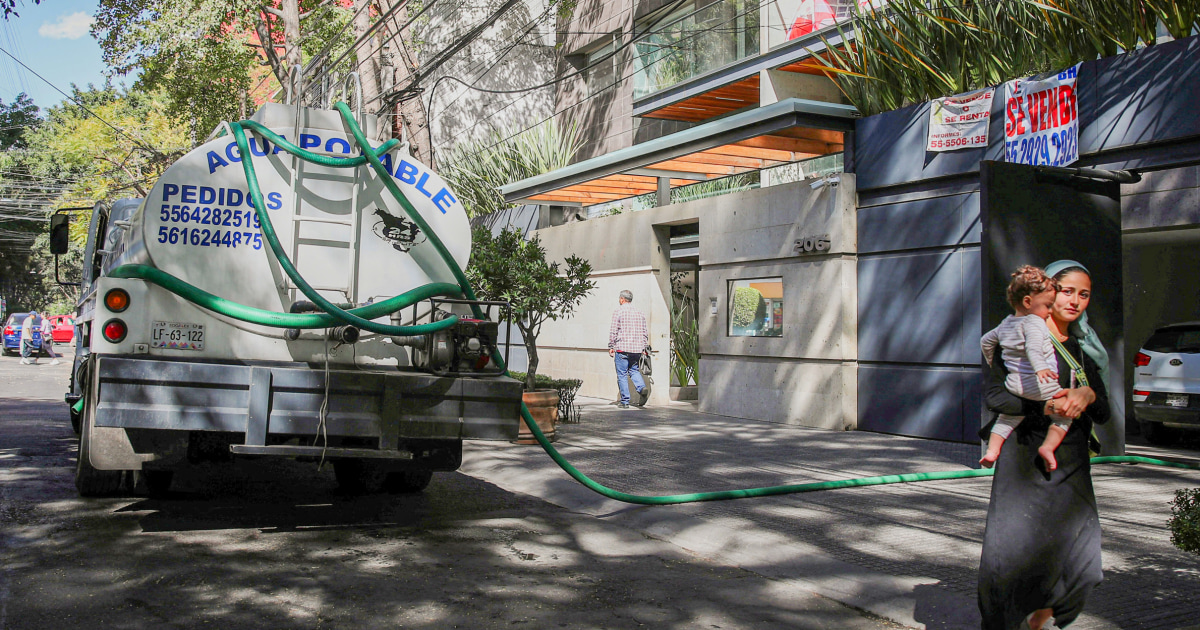On the left, the Teotihuacan mask and on the right, the statue of the goddess Cihuatéotl. Christie's
The history of the auction of pre-Hispanic pieces in France repeats itself.
Mexico has claimed some 33 objects that have been put up for auction by the firm Christie's in a bid to be held on February 9 in Paris.
The Latin American country continues the struggle to recover its heritage, which is exhibited in European collections, but which has so far yielded little fruit.
The National Institute of Anthropology and History (INAH) has filed a complaint with the Mexican prosecutor's office to take legal action for the commercialization of the pieces, and has also asked the Ministry of Foreign Relations (SRE) to begin diplomatic actions to recover the objects.
"It was determined that the auction catalog includes pieces that correspond to cultures originating in Mexico, which is why they are part of the nation's heritage," explains the Institute in a note delivered to this newspaper.
The pieces are part of a series of collections that have been exhibited in various European countries in the last century.
Among the objects there are sculptures, vessels, masks, plates and figures of the Aztec, Mayan, Toltec, Totonac, Teotihuacan and Mixtec cultures, from states such as Veracruz, Nayarit, Guerrero, Guanajuato, Colima, Chiapas and the State of Mexico.
Most have been carved in stone or made with clay.
The auction house has titled the bid
Quetzalcóatl, feathered serpent
and offers the pieces in values between 4,000 and 900,000 euros (100,000 pesos at 22.3 million pesos).
Christie's has guaranteed the authenticity of the lots by displaying the collections to which each of the objects in its catalog have belonged.
Two pieces with the highest sale value stand out in the auction.
On one side is a 15-centimeter Teotihuacan stone mask, which they have called Quetzalcóatl, from the classical period (450-650 AD) whose opening price for the bid is between 350,000 and 550,000 euros (between 8.6 and 13.6 million pesos).
Christie's notes that the mask belonged to Pierre Matisse, the youngest son of French artist Henri Matisse, and has been exhibited twice: in 2012 at the Quai Branly-Jacques Chirac Museum in Paris and in 2018 at the Palazzo Loredan in Venice.
How the piece got to Europe is unknown.
“They call it Quetzalcóalt probably because they think it will sell better that way.
This sale is unethical, illegal, and very sordid, ”Arizona State University archaeologist Michael E. Smith wrote on his Twitter account.
There is also a stone sculpture of the goddess Cihuatéotl, the goddess of women who die in childbirth, and which was found in the archaeological zone of El Zapotal, in Veracruz.
The 87-centimeter figure belonged to the Totonac culture in the classical period (600-1,000 AD).
The auction house asks as the opening price for the bid between 600,000 and 9,000 euros (about 14.8 to 22.3 million pesos).
The piece was found with 13 other specimens in a shrine.
Christie's notes that it has been exhibited to the public twice in 1976 and 1982 in Brussels.
Mexico has been on a crusade for a couple of years to recover the historical heritage found in private collections around the world.
However, in France, the Mexican government has encountered constant resistance to return the pieces.
The Secretary of Culture, Alejandra Frausto, has argued for several months that French legislation is "very hostile" and prevents the recovery of Mexican heritage.
In 2019, the Mexican government tried to stop the auctions of dozens of archaeological pieces.
In September 2019, Mexican diplomacy sought to stop the bidding of 95 pre-Hispanic objects auctioned by the French house Millon.
The SRE, through the Embassy in Paris, tried to claim the pieces, without success.
A month later, the Sotheby's house offered 44 pre-Hispanic pieces that were also indicated by the Mexican Government.
Mexican legislation establishes that the finds of objects of ancient cultures in Mexican territory belong to the nation, but once they leave the country illegally, the authorities lose track of them.
Not all the cases have ended unsolved, there is that of the Xoc bas-relief found in Paris in 2015, at an auction by the firm Binoche et Giquello, and which was returned to Mexico two years later.



/cloudfront-eu-central-1.images.arcpublishing.com/prisa/QMTJUZ634RCHPHI2Y4A27EYAOQ.jpg)





